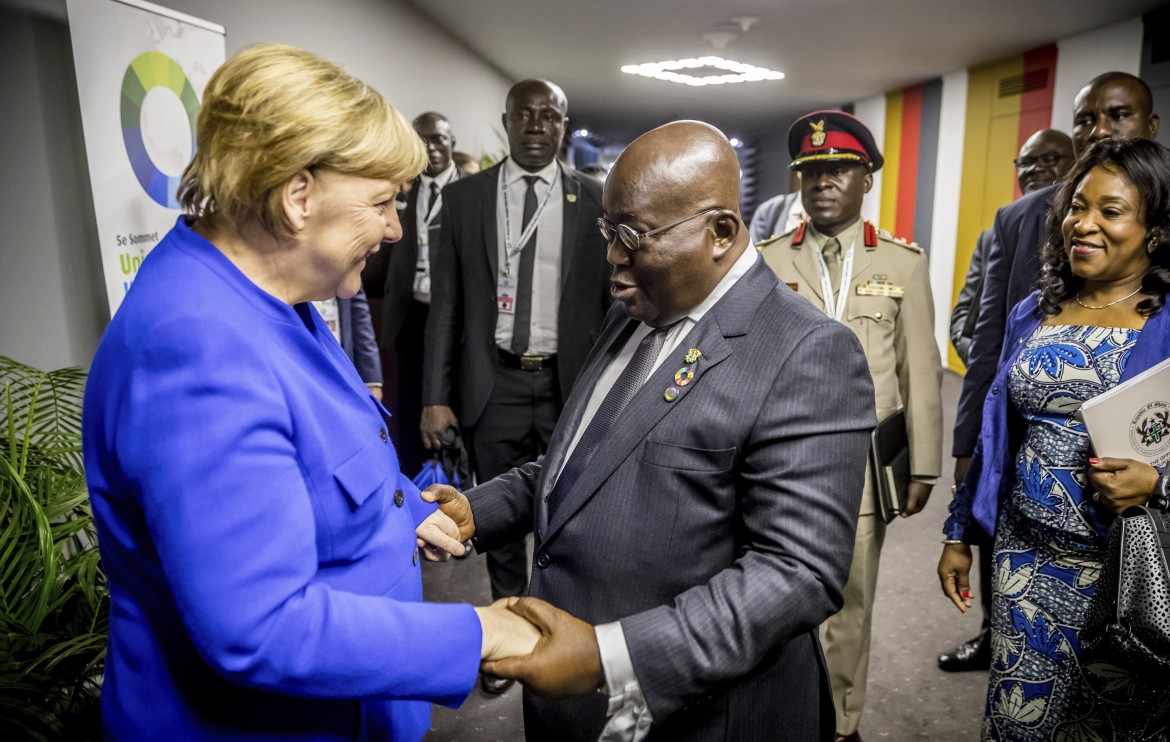Analysis
Europe presses Africa to ‘do their part’ to contain migrants
Emmanuel Macron is in West Africa this week attempting to raise money for development there. Looming over the initiative is a failing E.U. ‘security’ and migration plan.

First came the announcement of a Euro-African joint operation to free the migrants held prisoners in detention centers in Libya. Then came the promise of substantial investment for the benefit of small and medium-sized African businesses. The impression we are left with is of two parallel summits taking place these days in the Ivory Coast: the pre-announced one between the European Union and African Union, and another, unexpected summit between the same Africans leaders and Emmanuel Macron, determined to play the role of undisputed protagonist.
On Wednesday, before his arrival in Abidjan, where the summit is taking place, the French president sent a message that must have been particularly pleasing for African leaders: his intention to create a fund worth $1 billion for the benefit of small- and medium-sized companies on the continent. These funds would be made available by the French Public Investment bank and the French Development Agency.
“The goal,” Macron explained before leaving Burkina Faso for the Ivory Coast, “is to multiply these funds tenfold, with an appeal to our European allies and to other private financiers, from Europe and beyond.”
It is not a given that the forward role assumed by the occupant of the Elysee Palace is a development welcomed by the other European leaders. More likely the opposite. Beside agriculture, digital development, sustainable cities and energy, African SMEs are one of the five areas on which the E.U. has decided to focus, providing development for African economies in exchange for security for Europeans. What this ‘security’ refers to is full cooperation in locking down internal borders, but also in taking back those who have crossed the Mediterranean and managed to land in Europe. These desperate people are referred to in the final statement of the summit as those taking part in “irregular migration.”
Now, Macron’s announcements could overshadow the work done by the E.U. in the past months, crediting the French president as the main European leader during a difficult moment for Chancellor Merkel and with Britain on track to exit the Union.
Take, for example, the proposal to evacuate the migrants from Libya, a goal toward which the International Organization for Migration is already working, as confirmed Wednesday to the U.N. Security Council by the head of the IOM, William Lacy Swing. The plan provides for four flights per week for the voluntary repatriation of 20,000 migrants, a task that will take several months to complete, without resolving the fundamental issue. As the IOM official admitted, this will only involve emptying 30 government-run centers, without touching those run by the militias, which is to say most of them.
Still, the High Representative of the E.U. for Foreign Affairs and Security, Federica Mogherini, asked the African partners Wednesday to “do their part” in taking back their citizens. The first response came from the President of Nigeria, Muhammadu Buhari, who announced the repatriation and “rehabilitation” of all Nigerians stranded in Libya and “other parts of the world.” Buhari added that he was shocked by the images shown on CNN where “some Nigerians were being sold like goats for few dollars in Libya.”
Too bad that the diligence the E.U. is asking from African states regarding repatriations is not also being asked of E.U. member states in order to ensure a framework for legal entry to Europe, the only way to truly take the migrants out of the hands of traffickers. “This argument is not popular among European political parties,” Mogherini admitted, “but if all the migrants in Europe were to disappear tomorrow, entire sectors of our economy would collapse overnight.”
Originally published at https://ilmanifesto.it/mogherini-gli-stati-africani-facciano-la-loro-parte-con-i-rimpatri/ on 2017-11-30
